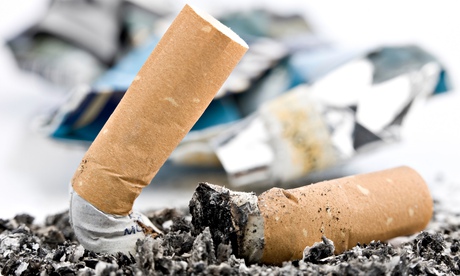Larry Elliot in The Guardian
Three times a week an update on new Covid-19 cases is published by the economics consultancy Pantheon. Vaccination rates are monitored by the Swiss bank UBS. The scientists advising the government are in regular contact with the Bank of England’s monetary policy committee – the body that sets interest rates.
Richard Nixon may or may not have said “we are all Keynesians now” after the US broke its link with gold in 1971 but one thing is for sure: all economists are epidemiologists now. And there’s a downside and an upside to that.
The downside is that economic forecasting is currently even more of a mug’s game than usual because even the real (as opposed to the amateur) epidemiologists don’t really know what is going to happen next. Are there going to be new mutations of the virus? Assuming there are, will they be less susceptible to vaccines? Will Covid-19 go away in the summer only to return again as the days get shorter, as happened last year? Nobody really knows the answers to those questions.
The upside is that the pandemic has forced economists to look beyond their mechanical models and embrace thinking from other disciplines, of which epidemiology is just one.
For a start, it is hard to estimate how people are going to react to the easing of lockdown restrictions without some help from psychologists. It is possible that there will be an explosion of spending as consumers, in the words of Andrew Bailey, “go for it”, but it is also possible that the second wave of infection will make them a lot more cautious than they were last summer, when there was still hope that Covid-19 was a fleeting phenomenon.
An individual’s behaviour is also not entirely driven by their own economic circumstances. It can be strongly affected by what others are doing. If your peer group decides after having the vaccine that it is safe to go to the pub, that will probably affect your decision about whether to join your mates for a drink, even if you are slightly nervous. Sociology has a part to play in economic forecasting.
As does history, if only to a limited extent, because there are not a lot of comparable episodes to draw upon. A century has passed since the last truly global pandemic and there is only so much that can be learned from the outbreak of Spanish flu after the first world war. But when Andy Haldane, the chief economist of the Bank of England, says the economy is like a coiled spring waiting to be unleashed, that’s because he thinks there are lessons to be learned from the rapid recovery seen last summer. Back then, the economy followed a near 19% collapse in the second quarter of 2020 with a 16% jump in the third quarter.
Naturally, economics has a part to play in judging what happens next. Millions of people (mostly the better off) have remained in work on full pay for the past year but have struggled to find anything to spend their money on. Millions of others – those furloughed on 80% of their normal wages or self-employed people who have slipped through the Treasury’s safety net – are less well-off than they were a year ago and may fear for their job prospects.
In an ideal world, the better-off would decide that the amount of money saved during lockdown was far in excess of what they needed and would then go on a spending spree: heading out for meals, taking weekend breaks, buying new cars; having their homes re-decorated. That would provide jobs and incomes for those on lower incomes.
But it might not work out like that. If the better-off leave their accumulated savings (or most of them, at least) in the bank, that means higher unemployment for those working in consumer-facing services jobs – such as hotels and restaurants – and an economy with a dose of long Covid.
There are two conclusions to be drawn from all of this. The first is that precise forecasts of what is going to happen to the economy over the next year, or even the next few months, should be treated with caution. Assuming the vaccination programme continues to go well, assuming that there are no further waves of infection, assuming restrictions are lifted steadily from early March onwards, and assuming that people come out of hibernation rapidly and in numbers, then the economy will start to recover in the second quarter. But there are a heck of a lot of assumptions in there: it might take until the third quarter for the bounce back to begin; the recovery might prove weaker or stronger than the consensus currently expects.
The second conclusion is equally obvious. If, as is clearly the case, the existence of so many imponderables makes precision forecasting more difficult than normal, it makes sense for economic policy makers to act with caution. For the Bank of England, that means no dash to embrace negative interest rates, which won’t be necessary if Haldane’s bullishness proves to be justified; and for the Treasury it means extending financial support and ignoring calls for higher taxes, especially those that might lead businesses to collapse or cut back on investment.
It would appear that Rishi Sunak has reached the same conclusion. There has been far less talk from the chancellor recently about the need to reduce the UK’s budget deficit, a process that has now been delayed until the second budget of 2021 in the autumn. By that stage, it might well once again by Sunak rather than the epidemiologists running the economy. Well, perhaps.
'People will forgive you for being wrong, but they will never forgive you for being right - especially if events prove you right while proving them wrong.' Thomas Sowell
Search This Blog
Showing posts with label mutation. Show all posts
Showing posts with label mutation. Show all posts
Sunday, 14 February 2021
Friday, 2 January 2015
We can’t control how we’ll die. The limits of individual responsibility
It’s important to live healthily, but scientists also tell us that the majority of cancers are down to chance – a good reminder of the limits of individual responsibility

Our terror of death (happy new year, by the way) surely has much to do with a fear that it is out of our control. The lifetime risk of dying in a road accident is disturbingly high – one in 240 – and yet the freakishly small chance of dying in a plane accident generally provokes far more fear. We dread a final few moments in which we are powerless to do anything except wait for oblivion. So perhaps the news that most cancers are the product of bad luck – rather than, say, our diet or lifestyles – is scant reassurance. Most cancers are a random lightning bolt, not something we can avoid by keeping away from tobacco or excessive booze, or by going for regular morning runs. That’s something we have to live with.
But perhaps the news should be of comfort. It is, of course, crucial to promote healthy lifestyles. Regular exercise, a good diet and the avoidance of excess does save lives. Yet the cult of individualism fuels the idea that we are invariably personally responsible for the situation we are in: whether that be poverty, unemployment or ill health. Cancer is more individualised than most diseases: all that talk of “losing” or “winning” battles. A far wiser approach was summed up by DJ Danny Baker after his own diagnosis. He said he was “just the battlefield, science is doing the fighting and of course the wonderful docs and nurses of the brilliant NHS”. The cancer patient, in other words, was practically a bystander in a collective effort.
One of the heroes of 2014 was Stephen Sutton because of his infectious optimism and cheerfulness in the face of cancer. But his battle was about not letting cancer consume his final few months on earth, rather than a superhuman quest to miraculously defeat the disease himself. What struck me about Stephen was that a situation that seemed nightmarish to most of us became an opportunity for him to take control of his life. It is what struck me, too, about Gordon Aikman, a 29-year-old Scot with a terminal diagnosis of motor neurone disease. There is no right way to die, but he has learned how to live.
So that’s why I have some sympathy with Richard Smith, a doctor who once edited the British Medical Journal. He has upset many by suggesting we are “wasting billions trying to cure cancer”, when it is the “best” way to go. I certainly would not advocate cutting back on cancer research, quite the opposite – even if other fatal diseases don’t receive the same amount of attention – and cancer can be a horrible way to die. But his point was that it provided an opportunity to make peace, to reflect on life, to do all the things you always wanted to do – to finally have control over your own life. Other ways of dying simply do not provide that option, either because they are so sudden or because of the form they take.
We have less of a say over how and when we die than we thought. That may be a cause for anxiety: it may actually frighten us more. I think it’s liberating. If only we learned to live like many of those – like Stephen or Gordon – facing death, taking control of their lives, we would be so much happier than we are.
Subscribe to:
Comments (Atom)
